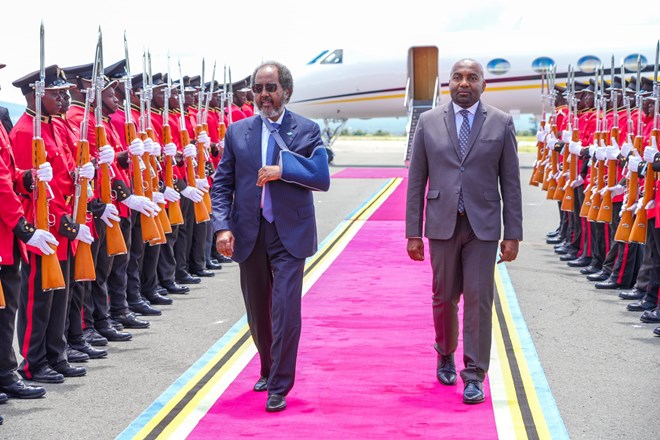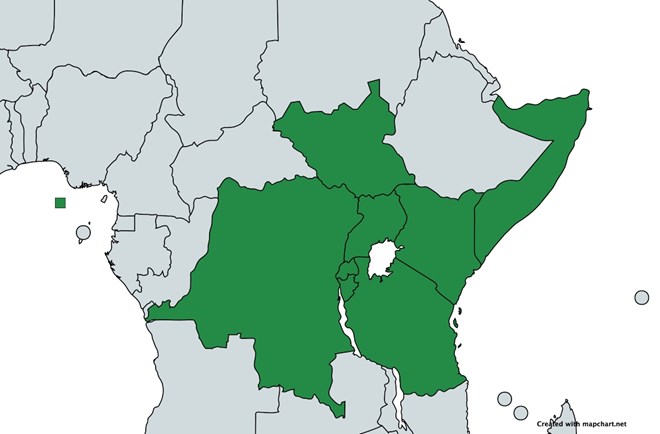
Thursday December 14, 2023

Somalia's President, Hassan Sheikh Mohamud (Left) arrival to Arusha, Tanzania for 23rd EAC heads of state Summit. Image: Courtesy
Kampala (HOL) - Somalia is set to become the eighth member of the East African Community (EAC) in a landmark accession ceremony scheduled for Friday in Kampala, Uganda. The event, marking a significant regional integration, will be presided over by EAC Chairperson, President Salva Kiir of South Sudan, with the presence of Uganda's President Yoweri Museveni and Somali President Hassan Sheikh Mohamud.
The formal entry of Somalia into the EAC, following its acceptance at a summit in Arusha, initiates a six-month period for the nation to deposit the Instrument of Ratification, finalizing its membership. The integration brings Somalia into a regional bloc encompassing nearly 300 million people, spanning countries like Burundi, the Democratic Republic of Congo, Kenya, Rwanda, South Sudan, Tanzania, and Uganda.
Somalia's journey to EAC membership has been complicated, starting in 2011 under former President Sharif Sheikh Ahmed and gaining momentum with President Mohamud's current tenure. Despite some regional hesitancy due to Somalia's political instability, its vibrant private sector and the prospect of economic growth have been pivotal in securing its place in the bloc.
Somali officials believe integration into the EAC will yield significant economic benefits, leveraging its extensive coastline and potential for untapped offshore resources. This move also coincides with the lifting of a 31-year-old arms embargo by the United Nations Security Council and the approval of $4.5 billion in debt forgiveness by international creditors, which is anticipated to bolster Somalia's efforts in tackling security challenges and fostering economic growth.
However, Somalia's accession is not without challenges. Critics have raised concerns about the country's readiness for economic integration. Abdirahman Abdishakur, Somalia's presidential envoy for humanitarian coordination, cautions against a hasty integration, pointing to the need for improved governance and socioeconomic structures.
Despite the hurdles, Somali businesses are optimistic. For instance, Shuayb Haji Nur Mohamed, managing director of Salaam Somali Bank, noted that the integration would simplify financial access for the large Somali Diaspora in East Africa and open avenues for regional investment, particularly in the blue economy, infrastructure, and real estate sectors.
